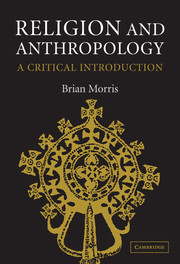Book contents
- Frontmatter
- Contents
- Preface
- Introduction
- 1 Shamanism
- 2 Buddhism and Spirit-Cults
- 3 Islam and Popular Religion
- 4 Hinduism and New Religious Movements
- 5 Christianity and Religion in Africa
- 6 African-American Religions
- 7 Religions in Melanesia
- 8 Neopaganism and the New Age Movement
- Conclusions
- References
- Index
4 - Hinduism and New Religious Movements
Published online by Cambridge University Press: 29 March 2011
- Frontmatter
- Contents
- Preface
- Introduction
- 1 Shamanism
- 2 Buddhism and Spirit-Cults
- 3 Islam and Popular Religion
- 4 Hinduism and New Religious Movements
- 5 Christianity and Religion in Africa
- 6 African-American Religions
- 7 Religions in Melanesia
- 8 Neopaganism and the New Age Movement
- Conclusions
- References
- Index
Summary
PROLOGUE
Oh east is east and west is west and never the twain shall meet. So sang a Western bard – Rudyard Kipling – in the arrogant heyday of British imperialism
These are the opening words of a book on ayurvedic medicine. The author, however, does not challenge this dichotomy; on the contrary, he emphasizes it. Western and Indian culture, he tells us, are ‘poles apart’. Western culture is aggressive, extroverted, selfish, analytic, and a ‘real curse to the cosmos’, while Indian culture – ancient Indian culture – is co-operative, synthetic, introverted, hospitable, and generous (Garde 1975, 1).
No one will dispute that there are not crucial differences between western and Indian cultures. The hegemony of positivistic science in western culture, with its dualistic metaphysics, its reductive materialism, and its individualism, inevitably leads to such a contrast: markedly with that of Indian culture, in which Hindu religion is seen as an ‘encompassing’ phenomenon. Indeed, Agehananda Bharati has written of the way in which he feels metaphysical conceptions, drawn from ancient Brahmanic doctrines, have permeated all aspects of Indian social life (1985, 189). But such contrasts, based on monolithic conceptions of particular cultural traditions, seem to me, whilst having some validity, to be extremely misleading, if not obfuscating. There is thus a tendency to equate Indian culture with Hinduism, and the suggestion that Hinduism is not a religion like Islam and Christianity but rather a civilization that expresses a universal ‘spirituality’.
- Type
- Chapter
- Information
- Religion and AnthropologyA Critical Introduction, pp. 112 - 145Publisher: Cambridge University PressPrint publication year: 2005



